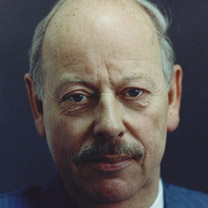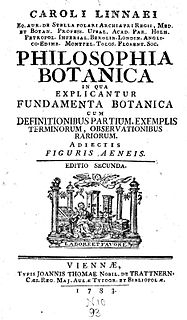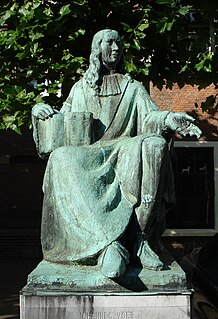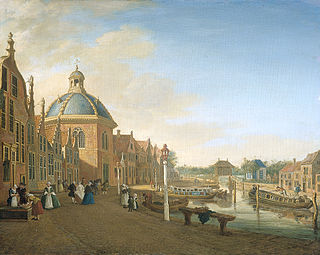
Hendrik Constantijn Cras (4 January 1739, Leiden – 5 April 1820, Amsterdam) was a Dutch jurist and city librarian of Amsterdam.

Leiden is a city and municipality in the province of South Holland, Netherlands. The municipality of Leiden had a population of 123,856 in August 2017, but the city forms one densely connected agglomeration with its suburbs Oegstgeest, Leiderdorp, Voorschoten and Zoeterwoude with 206,647 inhabitants. The Netherlands Central Bureau of Statistics (CBS) further includes Katwijk in the agglomeration which makes the total population of the Leiden urban agglomeration 270,879, and in the larger Leiden urban area also Teylingen, Noordwijk, and Noordwijkerhout are included with in total 348,868 inhabitants. Leiden is located on the Oude Rijn, at a distance of some 20 kilometres from The Hague to its south and some 40 km (25 mi) from Amsterdam to its north. The recreational area of the Kaag Lakes (Kagerplassen) lies just to the northeast of Leiden.
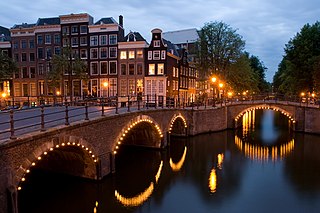
Amsterdam is the capital city and most populous municipality of the Netherlands. Its status as the capital is mandated by the Constitution of the Netherlands, although it is not the seat of the government, which is The Hague. Amsterdam has a population of 854,047 within the city proper, 1,357,675 in the urban area and 2,410,960 in the metropolitan area. The city is located in the province of North Holland in the west of the country but is not its capital, which is Haarlem. The Amsterdam metropolitan area comprises much of the northern part of the Randstad, one of the larger conurbations in Europe, which has a population of approximately 8.1 million.
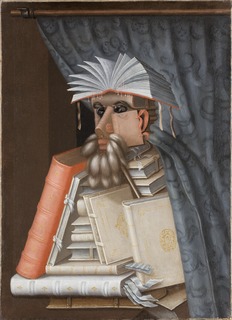
A librarian is a person who works professionally in a library, providing access to information and sometimes social or technical programming to users. In addition, librarians provide instruction on information literacy.
He studied law in Leiden. For nearly fifty years, beginning in 1771, he taught all fields of legal study at the Athenaeum Illustre in Amsterdam. His work mirrors the decline of the significance of Roman law in legal practice. Beginning his career as an adherent of Roman law, Cras became a fundamental supporter of natural law and legal codification towards the end of the 18th century. Noted for his focus on general principles of law, his lengthy publications on the principles of equality and liberty had nonetheless little lasting impact.

Athenaeum Illustre, or Amsterdamse Atheneum, was a city-sponsored 'illustrous school' founded after the beeldenstorm in the old Agnieten chapel on the Oudezijds Voorburgwal 231 in Amsterdam. Famous scientists such as Caspar Barlaeus, Gerardus Vossius, and Petrus Camper taught here.

Roman law is the legal system of ancient Rome, including the legal developments spanning over a thousand years of jurisprudence, from the Twelve Tables, to the Corpus Juris Civilis ordered by Eastern Roman Emperor Justinian I. Roman law forms the basic framework for civil law, the most widely used legal system today, and the terms are sometimes used synonymously. The historical importance of Roman law is reflected by the continued use of Latin legal terminology in many legal systems influenced by it, including common law.

Natural law is a philosophy asserting that certain rights are inherent by virtue of human nature, endowed by nature—traditionally by God or a transcendent source—and that these can be understood universally through human reason. As determined by nature, the law of nature is implied to be objective and universal; it exists independently of human understanding, and of the positive law of a given state, political order, legislature or society at large.
In 1798, Cras rose to prominence as the leading member of a commission charged with drafting national codes of law. The draft codes, published in 1804, appeared overly dogmatic and as a result never became law.





